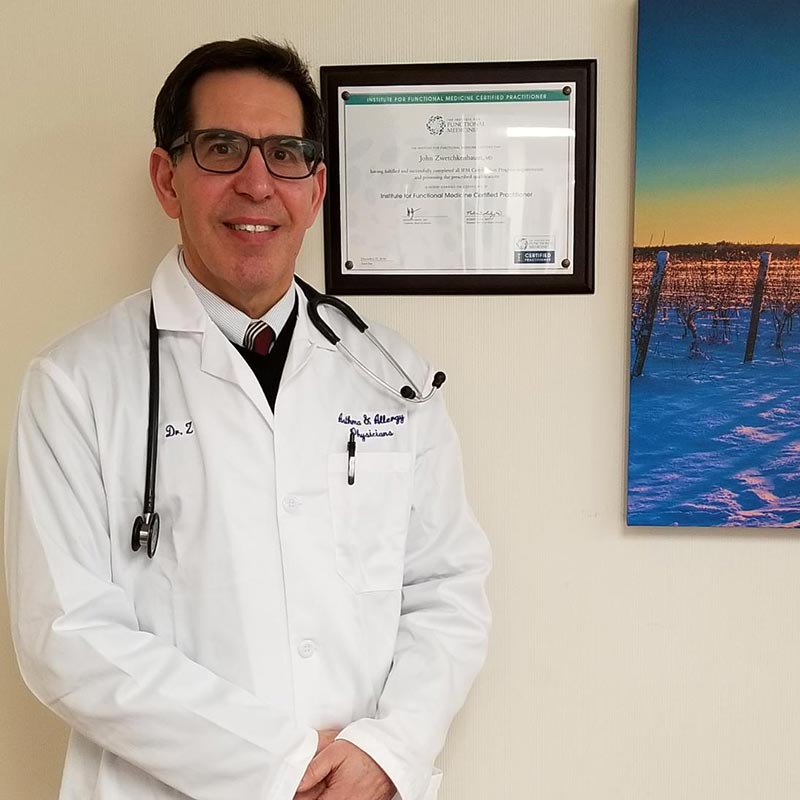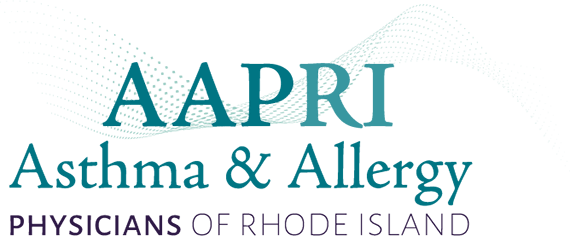By John Zwetchkenbaum, M.D.
Exploring the link between climate change and allergies
Are your allergies worse than they used to be? Or did you grow up without allergies, and now feel like you’re sniffling and sneezing your way through every spring? Recent articles suggest that climate change may be to blame, and New Englanders are definitely feeling it.
Climate change and pollen
Some of the effects of climate change include a longer growing season, marked by unseasonably warm winter and spring, as well as increased levels of carbon dioxide in the air. All this can result in a “bumper crop” of pollen production, according to a recent Boston Globe article: “Higher concentrations of carbon dioxide in the atmosphere provide plants with more food, making them larger and leading to more pollen, sniffling, and sneezing, research has shown.”
“Climate change creates circumstances in which allergies really get you coming or going,” says AAPRI founder and chief allergist Dr. John Zwetchkenbaum. “There’s more pollen, sure, but people used to feel better after the rain washed the pollen away. However, if we get too much rain, that’s bad news for people with mold allergies.” New England’s past few years of rainy springs and summers have been a testament to this.
Climate change and mold
As an allergist with more than 25 years of practice, Dr. Z has seen the effects of climate change on patients health firsthand. In a letter he wrote to the Providence Journal, he cited climate change as one of the key factors in the rise of allergies, especially mold allergies. “Rising numbers of city and state workers, including teachers, experience allergy symptoms caused by mold contamination in damp or leaky public buildings. Beyond the workplace, homes increasingly have wet or leaky basements, with residents (especially children) vulnerable to the harmful health effects of mold exposure.”
Dr. Z also advocated for “a comprehensive strategy that encompasses the larger goal of addressing climate change, as well as specific initiatives to develop better drainage designs that prevent recurring water damage” in his letter to the Journal.
Managing allergies
Is the extended allergy season is affecting you and your family? Our blog has tips on dealing with allergies for kids who play spring sports, as well as navigating the summer with kids’ allergies. The Globe article also highlights the efficacy of nasal spray for allergic rhinitis. Allergic rhinitis often develops in adults who didn’t have allergies in childhood, and typically doesn’t respond well to antihistamines. Read our blog for the best nasal spray techniques.
And don’t forget to contact AAPRI and schedule an appointment if your allergies are worsening to the point where you are increasingly uncomfortable and it’s affecting your daily life. Our combination of traditional and functional medicine is designed to help you find out what’s causing your allergies. Then, we can take the steps to reduce reactivity and relieve symptoms. As Dr. Z says, “Unfortunately, we won’t be able to roll back the effects of climate change in one day. But we can take steps to manage our allergies.”

John Zwetchkenbaum, M.D.
Dr. John Zwetchkenbaum is the chief allergist and founder of AAPRI, and author of Allergy Free with Dr. Z, a book about the underlying causes of allergies. Dr. Z received his medical degree from Boston University and is certified by the Institute of Functional Medicine. His philosophy is to treat the cause, defeat the symptoms of asthma and allergies.

